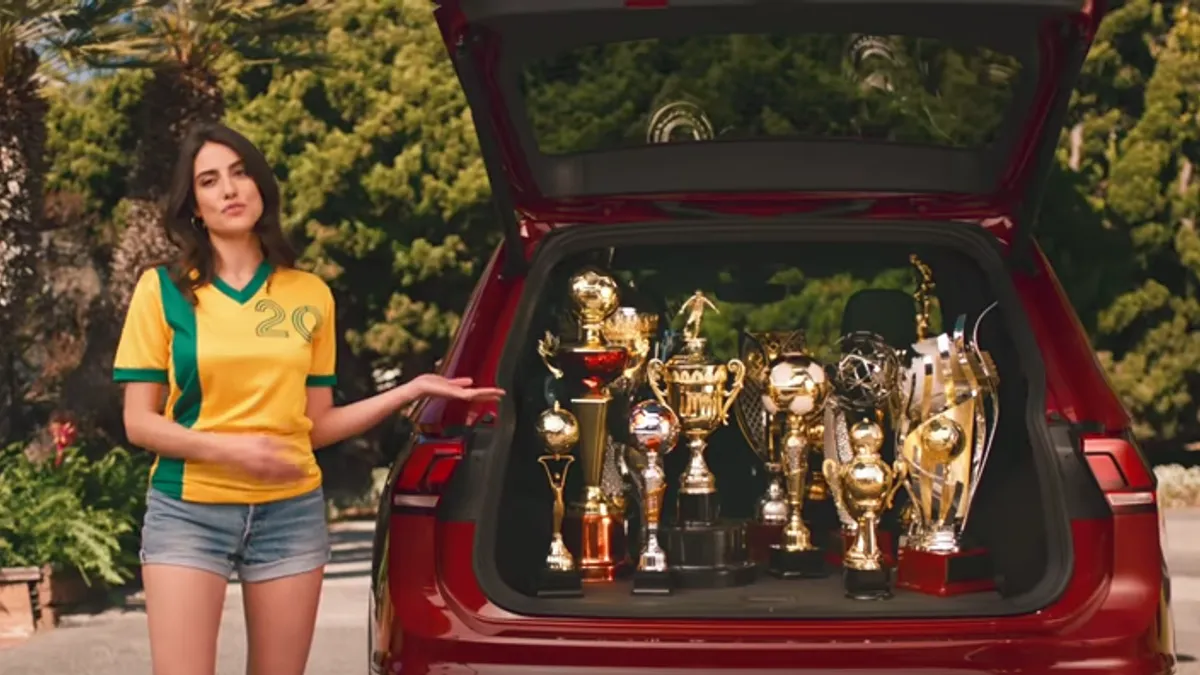During the first 48 games of this years' FIFA World Cup, it appeared that the lack of a qualifying U.S. team triggered a blow to viewership across the country. Ratings were forecast to be down up to 44% from the 2014 tournament in Brazil, according to Nielsen data.
Now, with the closing championship match this weekend, conflicting reports muddle whether or not Fox, the main broadcaster of the global soccer tournament in the U.S., will be able to deliver on revenue. But despite wavering viewership and uncertainty about American consumer engagement with the 2018 World Cup, steadfast marketers were wise to remain invested in the tournament despite the U.S. national team's absence.
The struggles at hand
Regardless of an American presence at the tournament this year, tensions were high heading into the World Cup. FIFA's recent bribery and corruption scandal and Russia winning hosting duties from England had some marketers cautious. Suspicion of unfair play led brands, including Johnson & Johnson, Sony, Continental, and BP Castrol, to pull out of sponsoring the tournament, according to the Guardian.
However, that's done little to slow the closely-watched spectacle's momentum. This year's World Cup is forecast to add $2.4 billion to the global advertising market, as it attracts more than 3 billion viewers worldwide. In the U.S., interest in the tournament is highest among consumers 18-35, with about half in that segment showing at least some level of interest, according to Statista research. Marketers in the nation have taken up several strategies in an attempt to reach this valuable audience.
Sidestepping the elephant in the room
Automaker Volkswagen tried to sidestep the lack of American presence in the tournament with its "Jump on the Wagen" campaign. The series of TV and digital ads feature folks from around the globe pitching benched U.S. fans with reasons why they should root for another country: Brazil has the most trophies, for example, while Switzerland touts the invention of the Swiss Army knife and Iceland notes that its comparatively small fan base prevents it from doing a proper version of "the wave."
McDonald's launched an ad push with a similar message poking fun at Americans' unfamiliarity with soccer. "World Cup — Opening Round" shows customers in the fast-food restaurant asking basic questions about the sport's rules while a game plays on TV. The 30-second spot ends with a goal and a brief conversation between customers: "What's tomorrow’s breakfast game?" followed by "Does it matter?"
And while the playful spot is relatively basic, it reminds consumers that McDonald's is screening some of this year's matches.
Keeping things referential
Other brands took the opposite approach, eschewing ribbing Americans' purported ignorance about soccer to instead focus on well-known characteristics of the game. Geico's "Longest Goal Celebration Ever" sits in the No. 8 spot in YouTube's top 10 most-watched ads from the tournament, according to Adweek, and humorously depicts a goal scorer's exaggerated slide celebration.
In a similar play, KFC South Africa poked fun at common over-the-top soccer flops — especially fitting after Neymar da Silva Santos Jr's rolling flop against Mexico — in a spot where an "injured" player rolls all the way off the field, through a city and over a bridge to a KFC location. While South Africa also didn't qualify for the tournament, the ad scored significant social media buzz in the U.S. and around the globe.
Stories of perseverance resonate
Big-name brands also continued to reach into their deep pockets to tell longer-form stories with strong emotional cores. YouTube's top 10 most-watched ads running around the World Cup featured Gatorade's "Heart of a Lio" and Beats by Dre's "Made Defiant" Mixtape, per Adweek, which have each scored tens of millions of YouTube hits.
"Heart of a Lio" is a Pixar-esque animated short depicting soccer star Lionel Messi's life and his overcoming adversity to chase his dream. Some of that dream was dashed when Argentina lost to France 4-3 in the round of 16, but the ad still went viral before the team's elimination.
Beats by Dre's "Made Defiant" mixtape, directed by the filmmaker Guy Ritchie, tells several stories of current and future players' ability to overcome the odds in four "tracks," hence the campaign's name. Similarities can be drawn to Beats’ long-form ad in 2014 "The Game before the Game."
The success of these campaigns reinforces recent research that longer online videos can also be bolstered by shorter teaser content. For example, Gatorade released a 30-second trailer nearly two weeks before the full, four-minute "Heart of a Lio" was released.
Outcomes unclear
If the 2018 World Cup has a bit of rocky start, it also appears to be having a somewhat murky close. Adweek reported earlier this week that Fox expects its broadcasting of the tournament stateside to be an ad revenue win despite the U.S. team's absence. But the ambitious prediction from Fox's SVP of ad sales conflicts with a Wall Street Journal report, published Thursday, that said the network is expected to lose money on the tournament.
So despite a handful of blockbuster campaigns, the true advertising winners and losers of the 2018 World Cup probably won't emerge until after the games end.






















